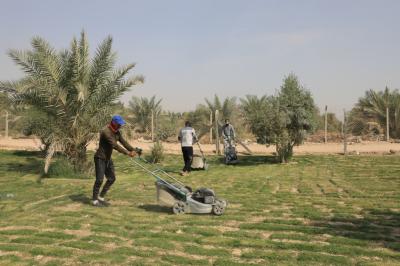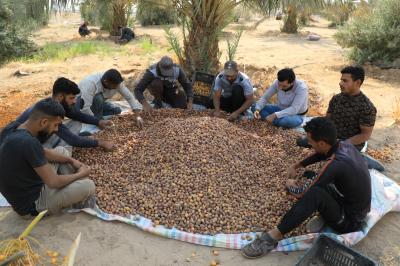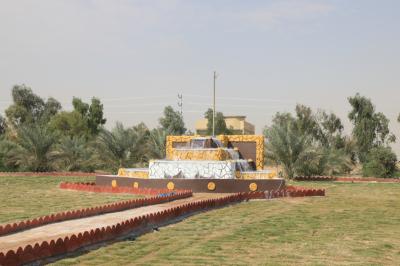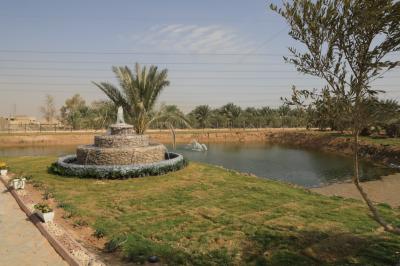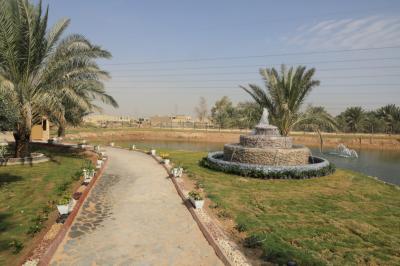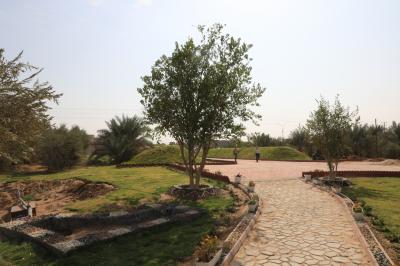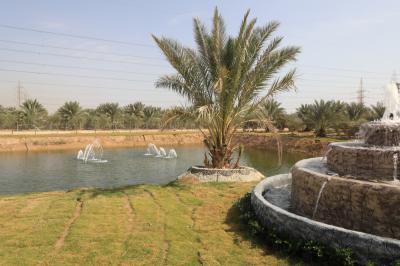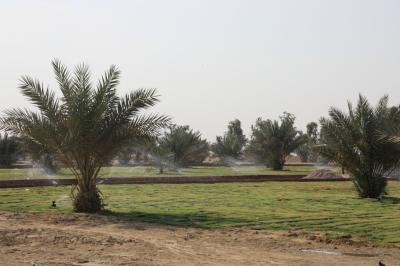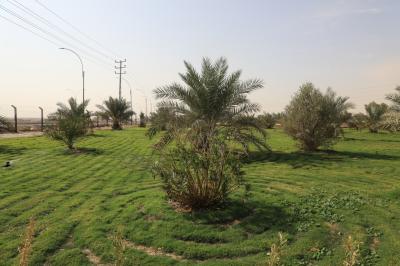The management of the Southern Green Belt project of the Al-Abbas's (p) holy shrine in Karbala governorate announced the production of more than (120) tons of dates annually after planting more than (17) Thousand Palms.
The project manager; Mr. Nasser Hussein, said that "the project produces more than (120) tons of dates per season, some of which go for human consumption and the other for animal consumption, indicating that the project has become a hinder of dust storms, because it connects (14) residential neighborhoods from the East and more than (8) neighborhoods from the West as it extends from the Razaza area to Najaf road. The project area is (27) km wide and (100) meters".
He added,"the green belt is one of the important strategic projects that serve the city of Karbala and contains (17) thousand palm trees, more than (23) thousand olive trees and about (17) thousand eucalyptus trees and other seasonal plants and flowers, pointing out that the project is working to improve the environment of the city and reduce the effects of dust storms and contribute to the elimination of desertification."
He continued,"We have reached advanced stages of the project and started with the first section, which is estimated to an area of (9) km, and we have completed more than (19) integrated green oases in terms of planting fruit and non-fruit trees and sprinklers, as well as planting them with Thistle, pointing out that more than (7) green oases and types of fountains were completed in the second section."
According to Hussein, the project contains (49) water systems, each of which covers an area of (50) thousand square meters, as well as (54) wells in the 27 km, relying on the National Energy in the operation of the systems".
The Al-Abbas's (P) holy shrine earlier sponsored this project, which is considered one of the strategic projects thanks to its economic and environmental importance and social feasibility as an outlet for Karbala families.

